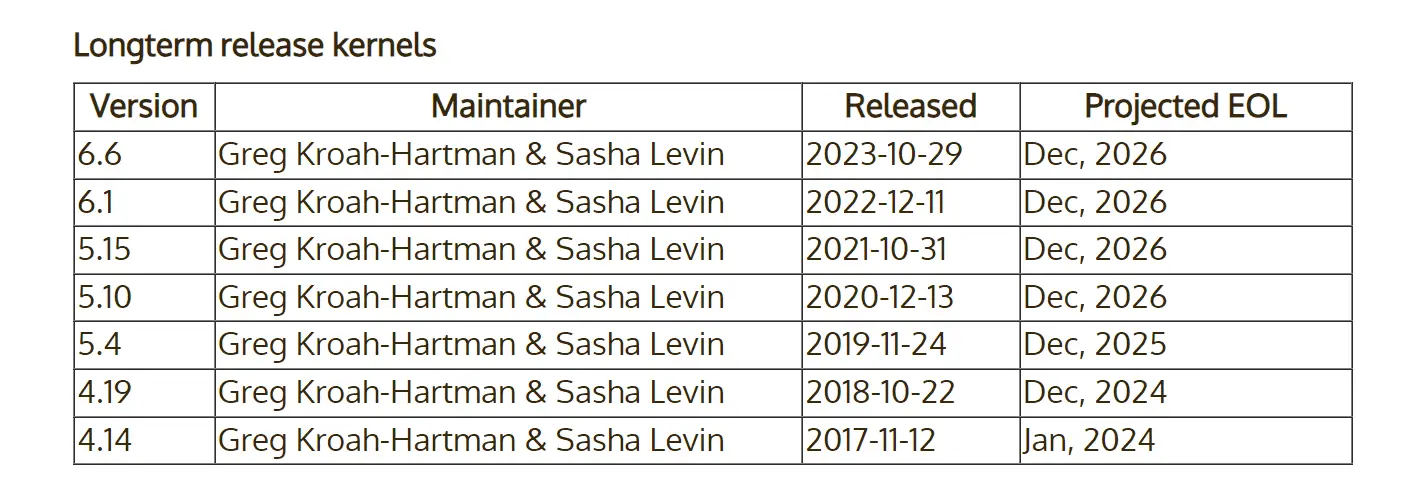Linux Kernel 6.6: Embracing Stability with Long-Term Support

Greg Kroah-Hartman has officially announced that the Linux Kernel 6.6 version will be a Long-Term Support (LTS) release, with support extending until December 2026.
Linux Kernel 6.6, officially released on October 29, marks a significant update encompassing new features, hardware support, security enhancements, and performance improvements. Notable inclusions are the introduction of the EEVDF scheduler, the final realization of support for Intel’s Shadow Stack, the addition of a user-space API necessary for the Mesa NVK Vulkan driver in the Nouveau DRM driver, continued support for upcoming Intel and AMD platforms, along with a host of other driver improvements and some noteworthy performance optimizations.

Typically, the annual LTS kernel is the last stable kernel version of that calendar year. With Linux 6.6 released at the end of October, Linux 6.7 is expected to reach stability in the final days of 2023 or early 2024. However, considering the larger scale of version 6.7 and the typical slowdown in testing and bug fixing due to the year-end holidays, it is likely that the 6.7 version will be launched in early 2024.
Currently, Kernel.org has updated its version information. The lifecycle of Linux 6.6 will conclude in December 2026; concurrently, Linux 6.1, 5.15, and 5.10 are also set to end their lifecycles in December 2026. Therefore, under the current policy, Linux Kernel 6.6 LTS will be maintained for the next three years. However, there are reports that kernel developers have been discussing reducing the LTS support period to two years.





